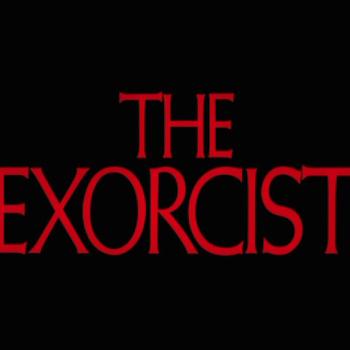When he returned to a more active role in 1992 as auxiliary bishop of Buenos Aires, he looked much more like the man we know today—visitor of slums, humbler of souls, servant of the servants of God. Newsweek captures the change well:
Returning to the city of his birth as a bishop meant that Bergoglio embraced an even larger family. He went to the villas miserias and spent long hours with the poorest of the poor. He became known as the Bishop of the Slums. Over his 18 years as bishop and then archbishop in Buenos Aires, one priest told me, Bergoglio talked personally to at least half the people in his slum. He would turn up, wander the alleyways, chat to the locals, bless their children and their homes, and drink maté tea with them. “He doesn’t see the poor as people he can help but rather as people from whom he can learn,” said Father Guillermo Marcó. “He believes the poor are closer to God than the rest of us.”
Many were staggered at the transformation. One of his former Jesuit pupils, Father Rafael Velasco, who is now Rector of the Catholic University of Córdoba, told me: “Bergoglio had been so very conservative that I was rather shocked years later when he started talking about the poor. It wasn’t something which seemed at the top of his agenda at the time but clearly became so as a bishop. Something changed.” And not just in Bergoglio himself. Over the next two decades Bergoglio transformed the face of the church in Buenos Aires. He quadrupled the number of priests serving in the slums. He became concerned with the water pressure in the pipes as much as the holy water in the churches. He backed self-help groups, co-operatives and politicised organisations – exactly the kind of work he had condemned two decades earlier.
But it was not simply his exile that had changed him. The world had also changed. The Marxist / anti-Marxist division of the Cold War era was gone (and we cannot forget that it is precisely this dichotomy that defined both him and Argentina during his tenure as provincial). Now one could side with the poor and against unjust institutions without reeking of Marxism and endangering one’s status within the Church. Few managed this line well during the Cold War—Dorothy Day, Peter Maurin, and Ammon Hennacy come to mind. The stink he once feared was now revealed to have meaning in an age of unleashed and unfettered capitalism. 2001 brought an economic depression to Argentina so stark that around half the population fell below the poverty line; the good bishop could not help but be moved.
When he finally did become a cardinal—and then pope—he came to Rome as a reformer of centralization and obscurantism. It’s easy to forget that in the aftermath of Pope Benedict’s resignation the issue was not the orthodoxy of papal theology; rather, the cardinals were concerned about the secrecy and bureaucracy of the Curia, specifically as it related to the Vatican Bank. Jorge Bergoglio became pope, in part, because he was seen as up to the task of addressing these problems. And he was.
Again, Newsweek:
The cardinals articulated two priorities for the new pope. He should reform the scandal-hit Vatican Bank and the dysfunctional Vatican bureaucracy known as the Curia. And he should restore a sense of collegiality to the governance of the church so that it was run by bishops collectively rather than by the pontiff behaving like a medieval monarch [as a medievalist, I have to say that this designation hardly seems just, but, well, whatever].
Francis acted swiftly to reform the bank and the bureaucracy, bringing in teams of top management consultants, sacking ineffectual regulators and closing over a thousand dodgy accounts. He set up a Council of Cardinal Advisory as a counterweight to the Curia; its members came from every continent, and included conservatives as well as moderates, but all had in common that they had previously been fierce critics of the Vatican’s haughty centralism.
Good enough. But what does all of this have to do with rigidity? Unfettered capitalism? The environment?
The latter two cases seem clear enough. The pope has managed a post-Cold War shift, something, I must lament, many American Catholics have simply not accepted. Understandably, American Catholics (for reasons of history, cultural sensibilities, political socialization, and more) still see world conflict as a dichotomy between freedom-lovers and freedom-haters, capitalists and Soviets, Republicans and Obama. Could this be why so many misunderstand Francis, because he speaks the language of the “Third Way,” because he recognizes that recognizing institutional sin is not Stalinism, because he knows that, as the product of the deeply corrupt and problematic churches of South America, preaching more of the same is not the way into distrustful people’s hearts?
Much the same could be said about his remarks against “proselytizing.” If one pays careful attention to his words and remembers whence he comes, it becomes clear that proselytizing is not all preaching and sharing of the Gospel, but a specific mindset and its concomitant mode. One should embody the joy of Christ in the way implied by the saying attributed to St. Francis of Assisi: “preach the Gospel at all times; use words when necessary.” The experience of conversion comes not through imposition, or even lecturing about rules (though there is a time for that), but through the experience of love in incarnate Christian existence. When a man has seen the distrust people develop for a corrupt Church, how can he think otherwise? When a man has himself let people die on account of his own hesitations and authoritarian imprudence, how else can he atone? Thus it is with Pope Francis.
Rigidity strikes me in much the same light. One could argue that the pope is imprudent to call out young, faithful Catholics when so much heterodoxy runs through the Church unchecked. There’s something to that. But, at the same time, one need only read an article like this one to see where the pope is coming from. I’ve said it before and I’ll say it again: I have affinity for the project of liturgical renewal, but such renewal cannot be separated from a renewal of spirit. If your Catholicism lacks joy (and I know mine has!), if it scolds novices and outsiders before it listens and loves, then it is an empty Catholicism. We may make the liturgy as beautiful as we wish; we may have 50 kids a pop and beat them over their heads with the Baltimore Catechism, but, without love and its affects, it is emptiness—a sham, a Peronist show trial of the heart. Pope Francis, perhaps still suffering from some of his youthful imprudence, though tempered by humility, know this.
And so, that is Jorge Mario Bergoglio—Argentine Jesuit, humbled ex-provincial, turned exile, turned auxiliary bishop, turned archbishop, turned pope. He has seen the Soviet Union fall, Peronism evolve, capitalism throw off all fetters, and yet he still tries to lead the Church in humility, the heavy lessons of a lifetime of mistakes upon his back. Will we read him with suspicion, or shall we honor him in love?













